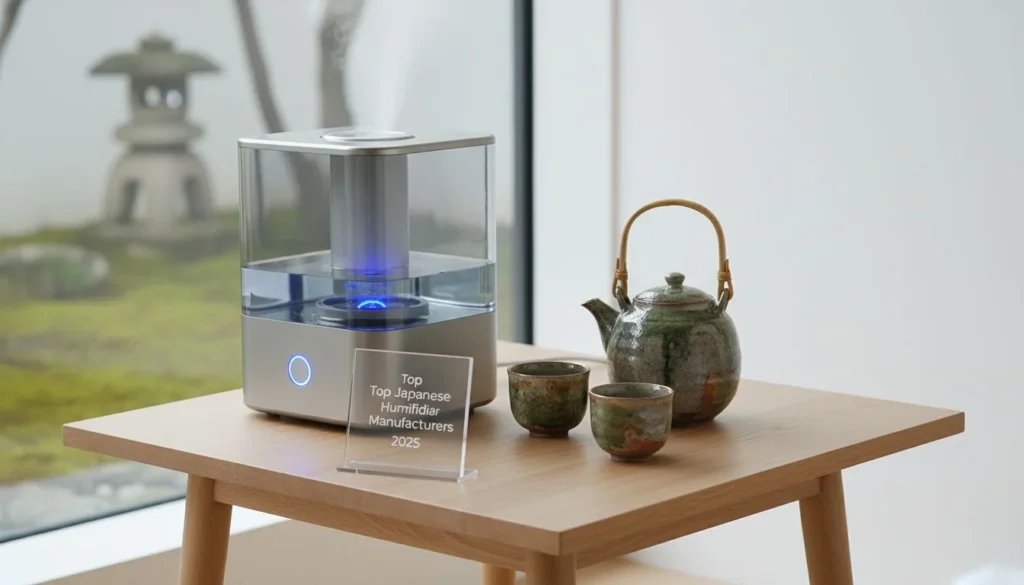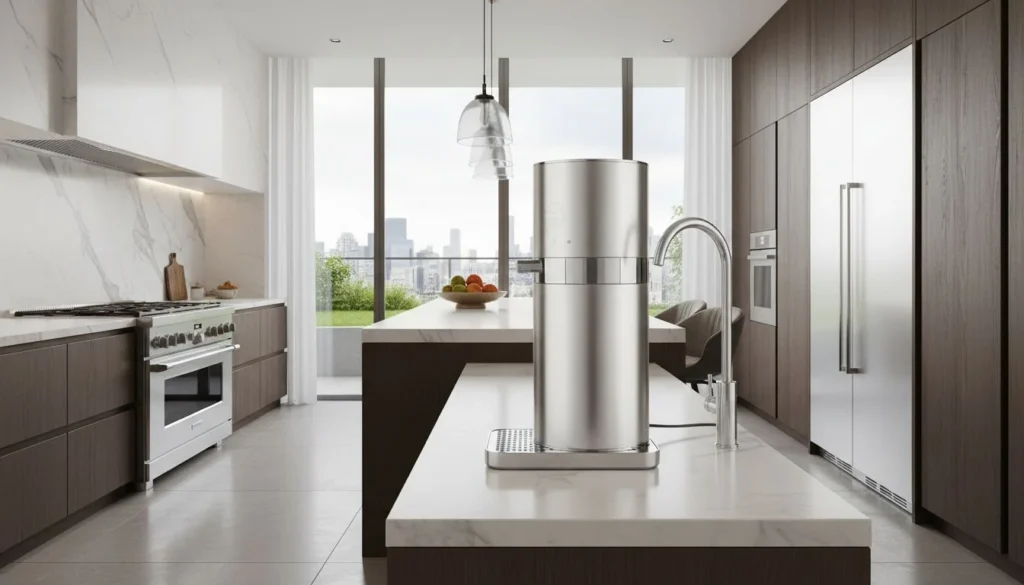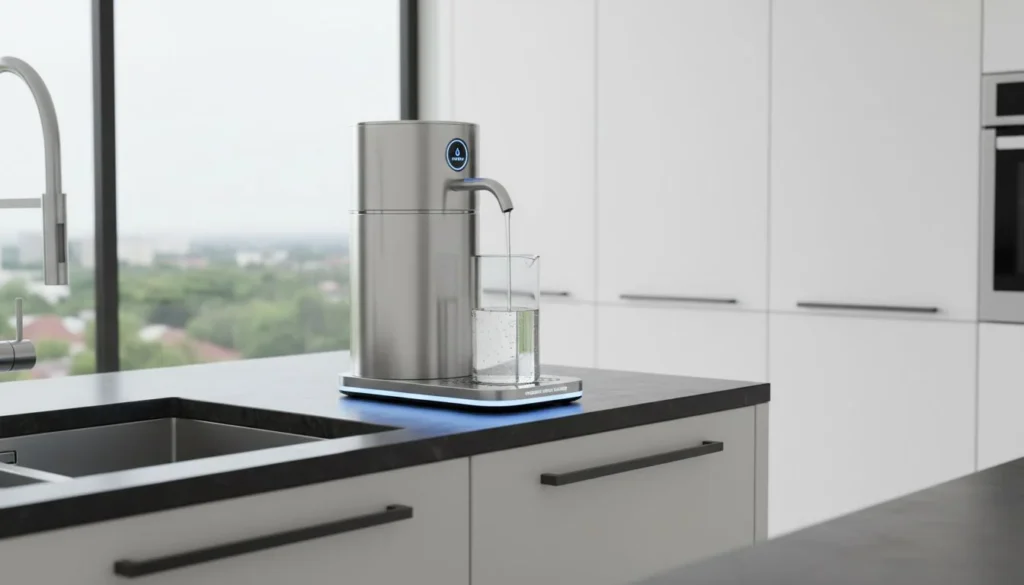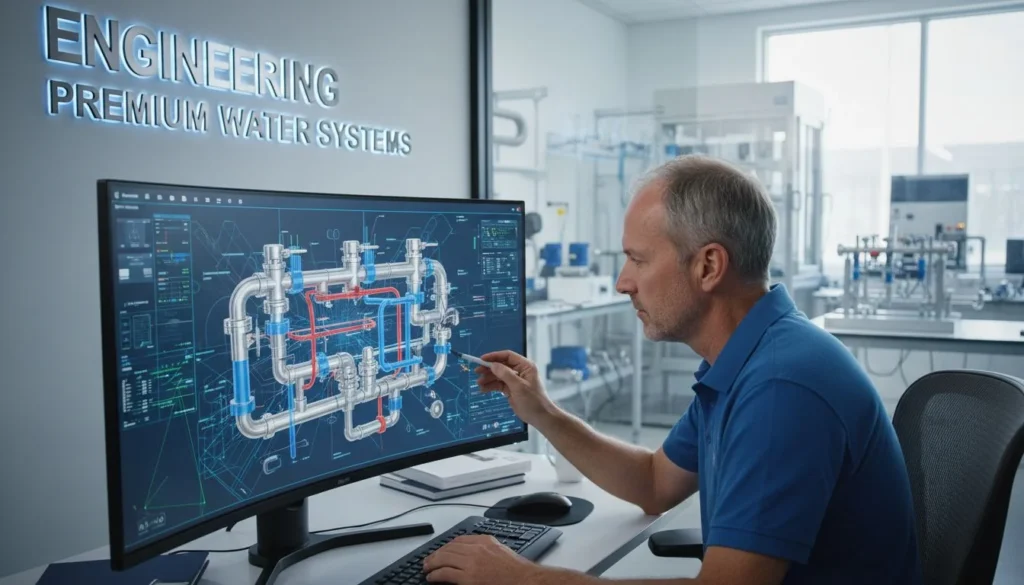Launching a new product can be intimidating. Whether you're an established brand looking to expand your product line or a startup entering the market for the first time, one of the most critical decisions you'll face is how to bring your product to market. The manufacturing path you choose will fundamentally shape your brand's trajectory, profitability, and competitive positioning.
In today's dynamic marketplace, two primary manufacturing strategies dominate the landscape: white label and private label. While these terms are often used interchangeably, they represent fundamentally different approaches to product development, branding, and market positioning. The choice between them isn't just about manufacturing; it's about defining your brand's identity, controlling your destiny, and maximizing your potential for success.
For brands in the air quality industry encompassing air purifiers, humidifiers, and dehumidifiers this decision carries even greater weight. The global air purifier market alone is projected to grow from USD 16.94 billion in 2024 to USD 30.08 billion by 2033, representing a compound annual growth rate of 6.6%. In such a rapidly expanding market, the manufacturing strategy you choose today will determine whether you capture a significant share of this growth or get lost in the competition.
This comprehensive guide will demystify the differences between white label and private label products, helping you understand which path aligns best with your business goals, budget, and timeline. Drawing from over two decades of experience in OEM and ODM manufacturing, we'll provide you with the insights needed to make an informed decision that positions your brand for long-term success.
What is the Fundamental Difference Between White Label and Private Label?
The fundamental distinction between white label and private label lies in two key areas: product exclusivity and the level of customization. Understanding these core differences is crucial for any business considering its manufacturing strategy.
White Label Products: A white label product is a generic, mass-produced item manufactured by one company and sold to multiple different retailers. Each retailer then applies their own branding and packaging to this standardized product. Think of it as selecting a high-performance, market-tested air purifier from a manufacturer's catalog and making it your own with your logo and brand identity. The core product is the same for everyone, but the brand is yours. Customization is typically limited to external branding elements like logos, packaging design, and sometimes minor color variations. The manufacturer retains full control over the product's design, specifications, and quality control processes. This model allows for rapid market entry and leverages existing, proven product designs.
Private Label Products: In contrast, a private label product is created exclusively for a single retailer according to their unique specifications. In this model, the retailer has significant control over the product's design, features, materials, and performance. This is a bespoke approach where you partner with a manufacturer to build a one-of-a-kind air treatment solution from the ground up. The manufacturer collaborates closely with the retailer to meet specific requirements, resulting in a unique product sold only by that retailer. This exclusivity allows for greater differentiation in the market and the ability to tailor a product precisely to a target audience's needs.
The fundamental difference between white label and private label lies in product exclusivity and customization: white label offers ready-made, generic products, while private label provides bespoke, unique solutions. This distinction impacts everything from time-to-market and upfront costs to profit margins and long-term brand defensibility. While white label offers a quick and efficient route to market, private label provides the opportunity to build a truly unique and proprietary product that can become a cornerstone of your brand's identity.
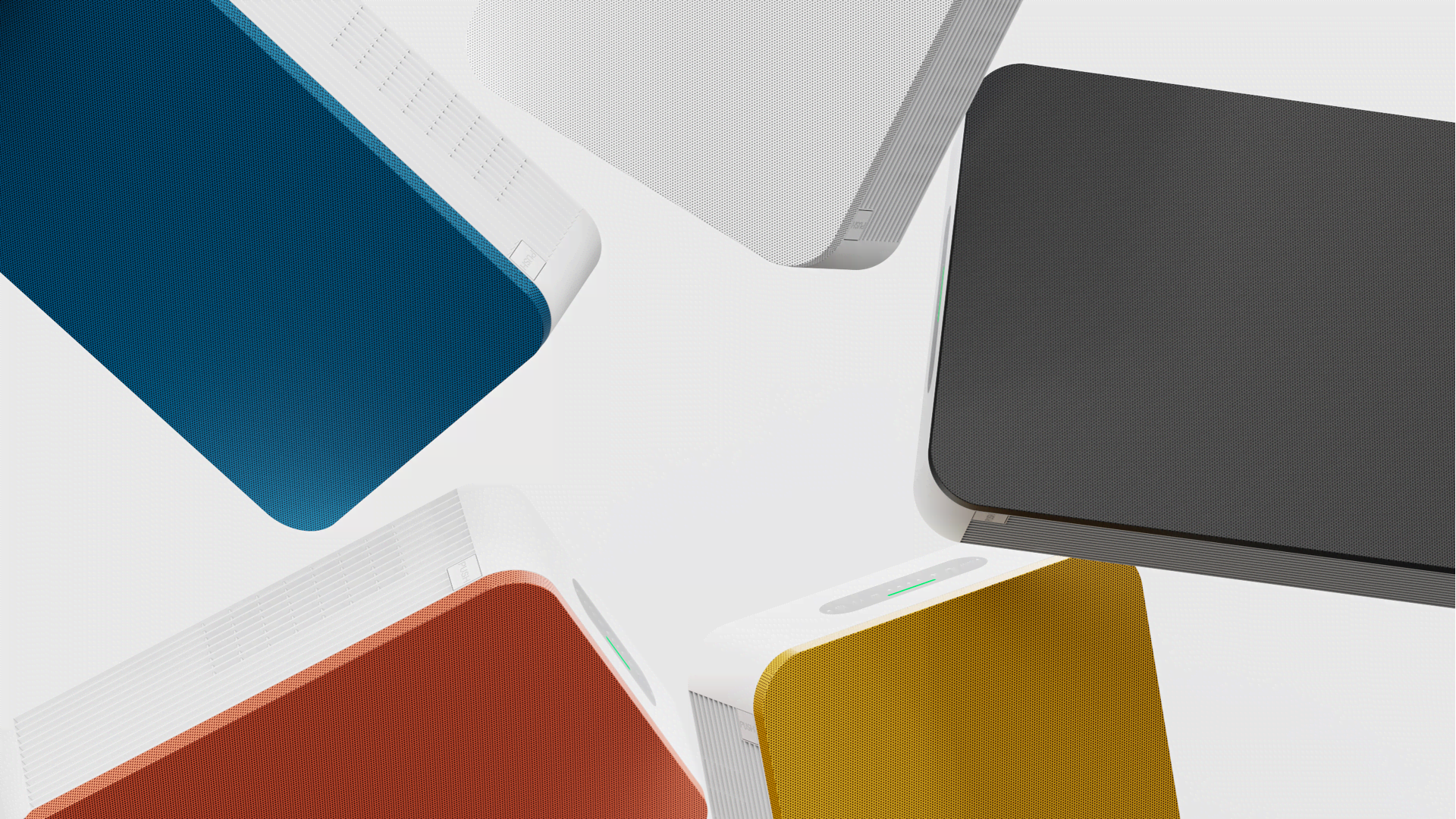
HisoAir | Wall-mounted Air Purifier
When Should Your Brand Consider a White Label Strategy?
The white label model is an excellent strategy for brands that prioritize speed, efficiency, and a lower-risk market entry. It allows businesses to quickly expand their product offerings without the significant investment in research and development typically associated with new product creation.
Benefits of White Label Products
-
Скорость выхода на рынок: White label products are already developed, tested, and ready for production. This means you can bring your product to market in a fraction of the time it takes to develop one from scratch. This rapid deployment is particularly advantageous in fast-moving consumer goods sectors or when capitalizing on seasonal demand.
-
Minimized Upfront Investment: This path allows you to bypass the significant costs associated with research, development, and tooling. It’s a cost-effective way to expand your product line, as you leverage the manufacturer’s existing designs and production infrastructure. This reduces financial risk and makes product expansion more accessible for businesses with limited capital.
-
Market Testing and Diversification: If you want to explore a new product category, like adding a dehumidifier to your existing line of air purifiers, white labeling allows you to test the waters with a proven product without a massive financial commitment. It’s an ideal way to diversify your portfolio and gauge consumer interest before committing to a more intensive development process.
Potential Downsides of White Labeling
While white label offers compelling advantages, it also comes with inherent limitations that brands must consider:
-
Limited Differentiation: Because other brands can sell the exact same core product, it can be challenging to stand out on features alone. Your brand story, marketing, and customer service become paramount in distinguishing your offering from competitors selling identical products under different labels. This can lead to price wars and reduced profit margins.
-
Less Control Over Product Specifications and Quality: You have minimal influence over the product’s specifications, features, or quality control processes. While reputable white label manufacturers maintain high standards, you are ultimately reliant on their production consistency. Any quality issues reflect directly on your brand, despite your limited control over the manufacturing process.
-
Zero Defensibility: When you rebrand and sell white label products, there’s a genuine possibility that your competitors might be selling the same product. With nothing unique about your product compared to your competitors, it’s only a matter of time before they begin eating into your market share. This lack of exclusivity makes it difficult to build a truly defensible market position.
White label strategies offer rapid market entry and reduced upfront costs, ideal for testing new product categories or expanding lines quickly. This approach is best suited for businesses focused on efficient market penetration and leveraging existing, proven product designs.
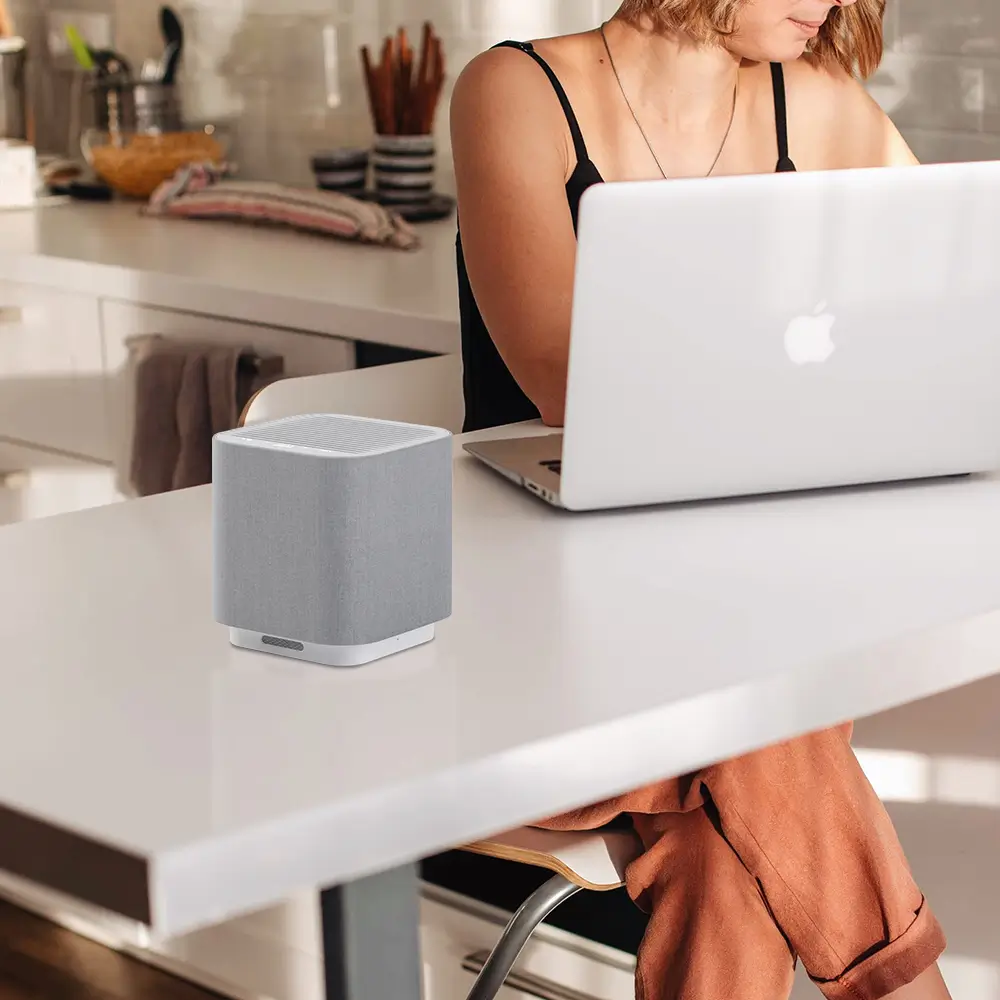
HisoAir | Desktop Air Purifier
Why is Private Labeling Key to Building a Unique Brand Identity?
The private label model is for brands aiming to build a unique, defensible market position through product innovation and a distinct brand identity. This approach allows for deep customization and exclusivity, fostering a strong connection between the product and the brand.
Benefits of Private Label Products
-
Build a Unique Brand: Your product will be exclusive to you, creating a powerful competitive advantage that is difficult for others to replicate. This exclusivity allows you to cultivate a distinct brand identity and narrative around a product that is truly yours. It’s about creating a proprietary offering that sets you apart in a crowded market.
-
Complete Control Over Product: You dictate every detail—from the CADR (Clean Air Delivery Rate) of your air purifier to its specific filter composition, industrial design, and smart features. This level of control ensures that the product perfectly aligns with your brand vision, quality standards, and target audience’s specific needs. It allows for iterative improvements and rapid adaptation to market feedback.
-
Maximize Profit Margins: Exclusive, custom-tailored products can command higher price points, often leading to significantly better profit margins. Without direct competitors selling the exact same product, you have greater pricing power and can capture more value from your unique offering. Retailers often see gross margins on private labels that are 25–30% higher than those on manufacturer brands.
-
Foster Brand Loyalty: A unique, high-quality product that perfectly meets your customers’ needs is one of the strongest drivers of long-term brand loyalty. When customers can only find a specific product from your brand, it strengthens their connection and reduces their likelihood of switching to competitors. This builds a loyal customer base and ensures repeat business.
Potential Downsides of Private Labeling
While private label offers significant advantages, it also comes with its own set of challenges:
-
Higher Upfront Investment: This path requires a greater initial investment in research, development, custom tooling, and testing. The costs associated with designing a product from scratch and setting up exclusive production lines can be substantial, making it a more capital-intensive endeavor.
-
Longer Time-to-Market: The bespoke development process, from concept to mass production, is naturally longer than simply rebranding an existing product. This extended timeline requires careful planning and can be a disadvantage if rapid market entry is a primary concern.
-
Higher Minimum Order Quantities (MOQs): To cover the costs of custom production and make the manufacturing process economically viable, manufacturers typically require a larger initial order. This can be a barrier for smaller businesses or startups with limited storage capacity or capital.
Private labeling allows brands complete control over product design and features, enabling the creation of unique, exclusive products that command higher margins and foster loyalty. This strategy is ideal for businesses committed to building a strong, differentiated brand identity and investing in proprietary product development.
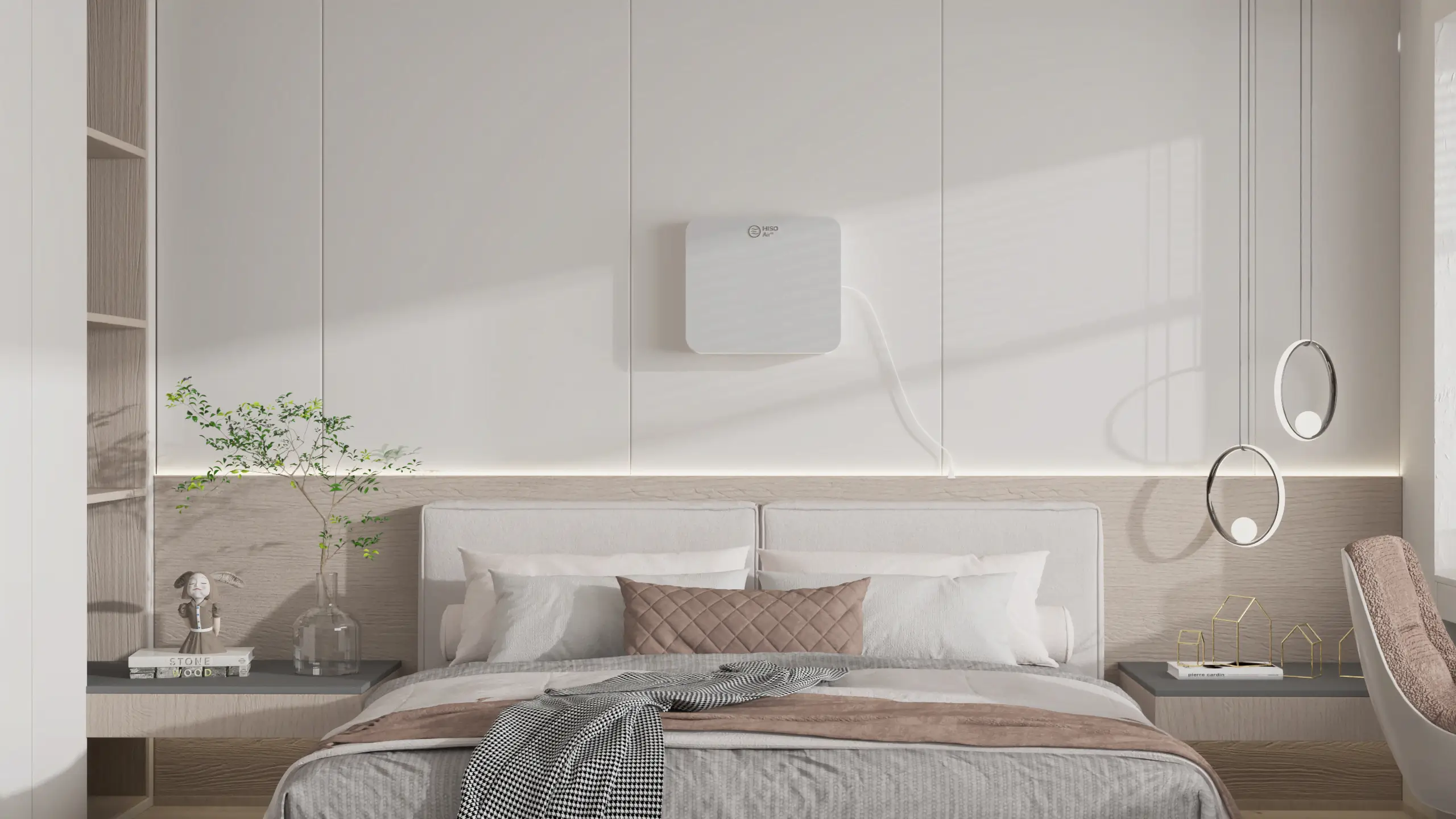
HisoAir | Wall-mounted Air Purifier
How Do You Choose the Right Manufacturing Path for Your Business Goals?
The decision between white label and private label is not a one-size-fits-all answer. The right choice depends entirely on your strategic goals, budget, timeline, and desired level of brand control. It’s a strategic alignment between your business objectives and the inherent characteristics of each manufacturing model.
To help you navigate this critical decision, consider the following comparison:
| Характеристика | White Label | Private Label |
|---|---|---|
| Primary Goal | Speed to market, market testing, cost efficiency | Brand building, market differentiation, exclusivity |
| Уровень настройки | Low (branding, packaging) | High (full product design, features, materials) |
| Product Exclusivity | No, product is sold to others | Yes, product is unique to your brand |
| Upfront Cost | Нижний | Higher (R&D, tooling, testing) |
| Time to Market | Fast | Slower (due to bespoke development) |
| Profit Margin Potential | Lower to Moderate | Higher (due to exclusivity and control) |
| Control Over Product | Low (manufacturer dictates specs) | High (retailer dictates specs) |
| Minimum Order Quantities (MOQs) | Generally lower | Generally higher (to cover custom production costs) |
| Brand Defensibility | Low (competitors can sell same product) | High (unique product, difficult to replicate) |
If your primary objective is rapid market entry, testing a new product category with minimal risk, or expanding your product line quickly without significant R&D investment, a white label strategy might be the most suitable. It allows you to leverage existing, proven products and focus your resources on marketing and distribution.
Conversely, if your goal is to build a strong, unique brand identity, differentiate yourself significantly from competitors, achieve higher profit margins through exclusivity, and maintain complete control over product design and quality, then a private label strategy is likely the better choice. This path requires a greater upfront investment and a longer development cycle, but it offers the potential for greater long-term brand value and market leadership.
Ultimately, there is no single "best" answer. A startup brand might use a white label strategy to enter the market quickly, while an established company may choose a private label approach to develop a flagship product that defines its brand. The key is to work with a manufacturing partner who has the expertise and flexibility to support your vision, whichever path you choose. At HisoAir, we are more than just a manufacturer; we are a strategic partner equipped for both journeys, offering both private label services for rapid customization and ODM/JDM services for complete concept-to-mass production solutions.
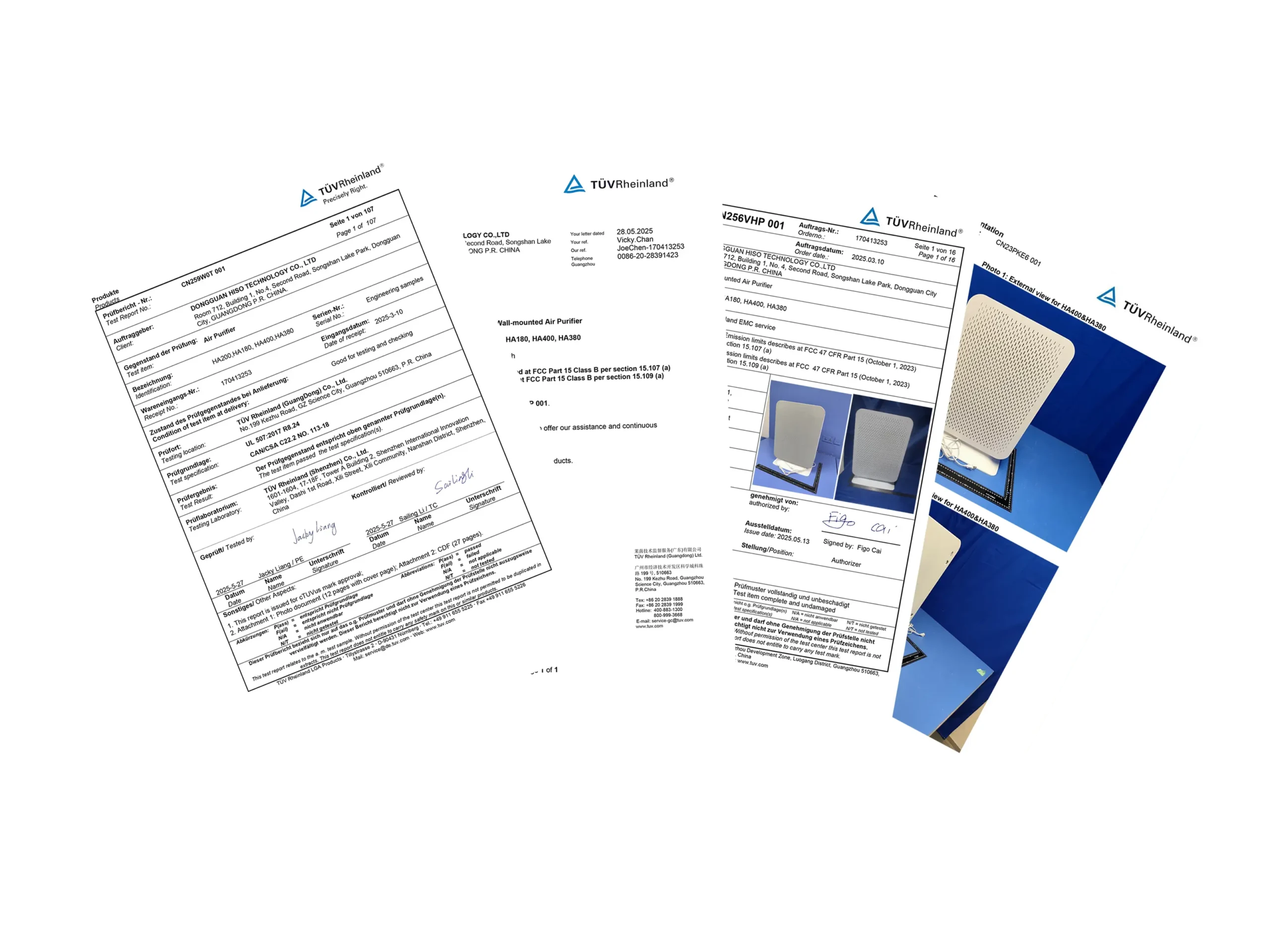
HisoAir | Certified to International Standards
Industry Context: Air Purifiers, Humidifiers, and Dehumidifiers
The air quality industry, encompassing air purifiers, humidifiers, and dehumidifiers, is experiencing robust growth driven by increasing global awareness of indoor air quality and health concerns such as allergies, asthma, and airborne pathogens. This burgeoning market presents significant opportunities for brands, regardless of their chosen manufacturing strategy.
According to Grand View Research, the global air purifier market was valued at USD 16.94 billion in 2024 and is projected to reach USD 30.08 billion by 2033, growing at a compound annual growth rate (CAGR) of 6.6%. This growth is fueled by urbanization, industrialization, and technological advancements like smart air purifiers with HEPA filtration and real-time monitoring. Similarly, the humidifier market is also expanding, with projections indicating substantial growth in the coming years, driven by health and wellness trends.
Within this competitive landscape, private label products are particularly prevalent as retailers and brands seek to differentiate their offerings. Manufacturers like GL Purifier88 and Crystal Quest actively offer private label air purifiers and air treatment products, indicating a strong demand for customized, exclusive solutions. Platforms like Wonnda also facilitate connections between manufacturers and retailers for private label air purifiers, highlighting benefits such as ease of production, lower minimum order quantities, and extensive customization options. This trend underscores the market's appetite for unique products that cater to specific consumer needs and brand identities.
HisoAir, as a leading OEM/ODM manufacturer in this space, is well-positioned to support brands in both white label and private label endeavors. Our website indicates that we already offer comprehensive private label services, allowing retailers to customize products with specific logos, color palettes, materials, surface finishes, and packaging designs. This process is designed to be efficient, with products ready to ship in weeks. Furthermore, HisoAir provides Original Design Manufacturing (ODM) and Joint Design Manufacturing (JDM) solutions, demonstrating advanced capabilities in product development and customization from concept to certified mass production. This existing infrastructure and expertise make HisoAir an ideal partner for businesses looking to navigate the complexities of the air quality market and bring innovative products to life.
Заключение
The choice between white label and private label manufacturing is a strategic one, deeply intertwined with your brand’s vision, market positioning, and growth objectives. While white label offers a compelling path for rapid market entry, cost efficiency, and testing new product avenues, it comes with inherent limitations in differentiation and control. Conversely, private label, though requiring greater investment and a longer timeline, empowers brands to build unique, exclusive products that foster strong loyalty and command higher profit margins.
For businesses in the burgeoning air quality industry, the decision is particularly critical. The market rewards innovation and differentiation, making the private label route increasingly attractive for brands aiming to establish a strong, defensible presence. However, the flexibility and speed of white label can still serve as a valuable tool for market diversification or initial product launches.
Ultimately, the "best" path is the one that aligns most closely with your specific business needs. As a seasoned OEM/ODM partner with over two decades of experience in air purification, humidification, and dehumidification, HisoAir is uniquely equipped to guide you through this decision and execute your chosen strategy. Whether you seek the efficiency of a customized private label solution or the comprehensive development of an ODM/JDM project, our expertise ensures your product vision becomes a market reality.
Ready to define your brand’s manufacturing future and bring innovative air quality products to market? Contact HisoAir today to discuss your project and discover how our tailored OEM/ODM solutions can elevate your business.


